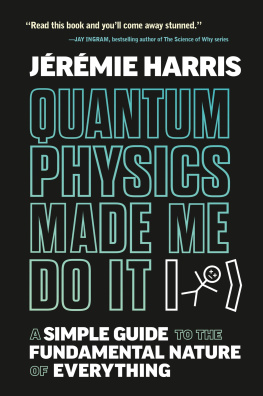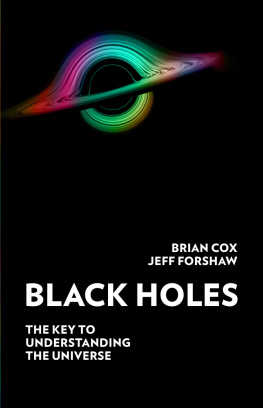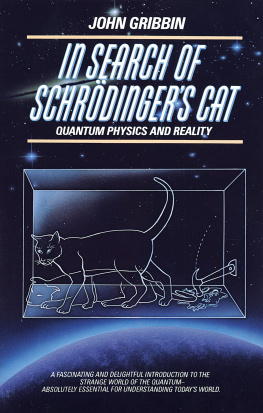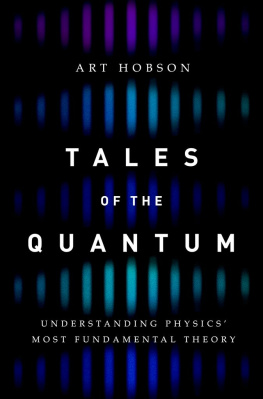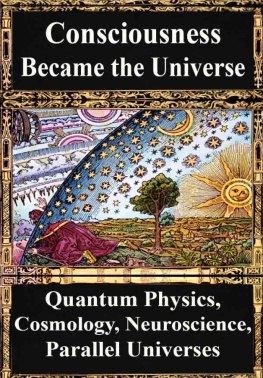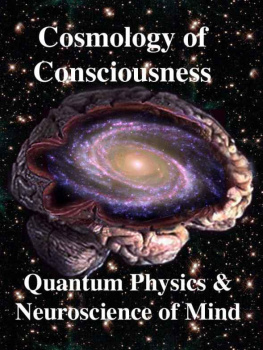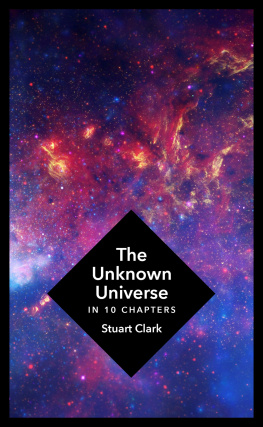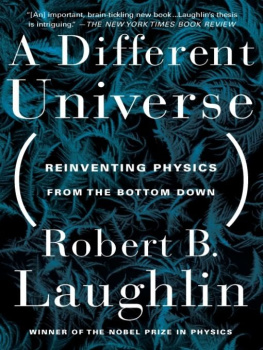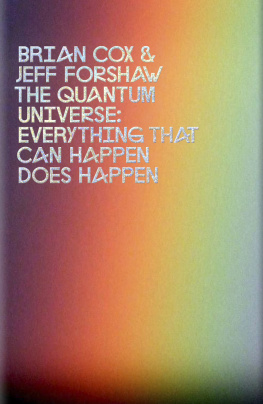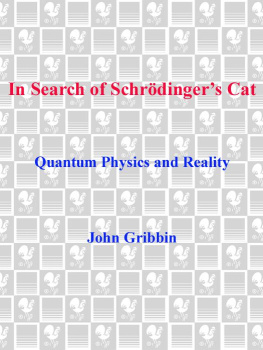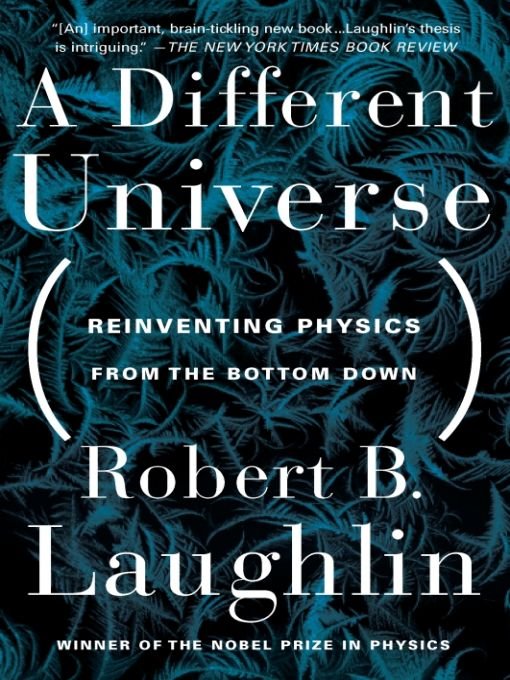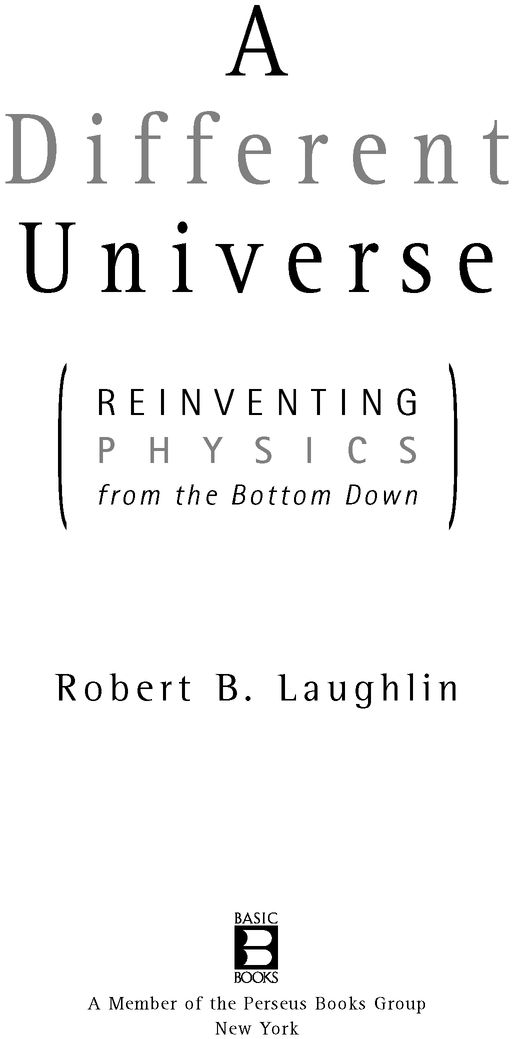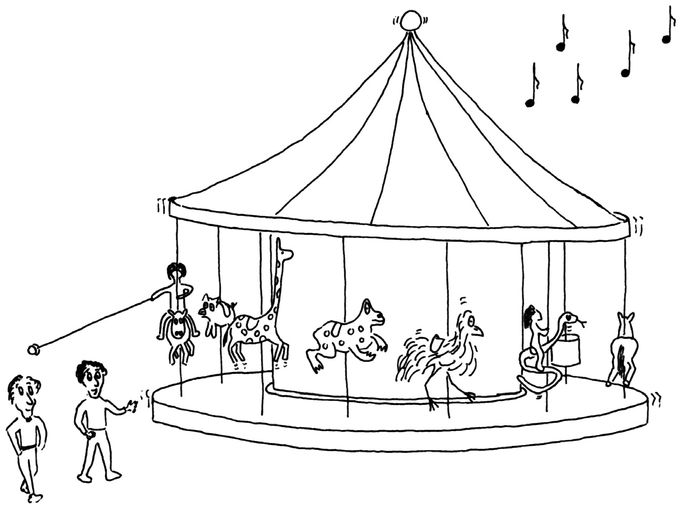Table of Contents
To
Anita
Not only is the universe stranger than we imagine, it is stranger than we can imagine.
Sir Arthur Eddington
PREFACE
All the rivers run into the sea; yet the sea is not full; unto the place from whence the rivers come, thither they return again.
Eccl. 1 : 7
There are two conflicting primal impulses of the human mindone to simplify a thing to its essentials, the other to see through the essentials to the greater implications. All of us live with this conflict and find ourselves pondering it from time to time. At the edge of the sea, for example, most of us fall into thoughtfulness about the majesty of the world even though the sea is, essentially, a hole filled with water. The vast literature on this subject, some of it very ancient, often expresses the conflict as moral, or as tension between the sacred and the profane. Thus viewing the sea as simple and finite, as an engineer might, is animistic and primitive, whereas viewing it as a source of endless possibility is advanced and human.
But the conflict is not just a matter of perception: it is also physical. The natural world is regulated both by the essentials and by powerful principles of organization that flow out of them. These principles are transcendent, in that they would continue to hold even if the essentials were changed slightly. Our conflicted view of nature reflects a conflict in nature itself, which consists simultaneously of primitive elements and stable, complex organizational structures that form from them, not unlike the sea itself.
The essence of life.
The edge of the sea is also a place to have fun, of course, something it is good to keep in mind when one is down there by the boardwalk being deep. The real essence of life is strolling too close to the merry-go-round and getting clobbered by a yo-yo. Fortunately, we physicists are fully aware of our own sententious tendencies and go to great lengths to keep them under control. This attitude was artfully expressed in a letter my colleague Dan Arovas, a faculty member at the University of California at San Diego, wrote to the humor columnist Dave Barry:
Dear Dave, I am a passionate fan of yours and read your column every day. I would give anything to be able to write like you. I have built a tree house in your honor and live in it. Yours, Dan
Dan reports that Dave wrote back:
Dear Dan, Thanks for the fan letter. By the way, do they let you anywhere near nuclear weapons? Best, Dave
A few years ago I had occasion to engage my father-in-law, a retired academician, on the subject of the collective nature of physical law. We had just finished playing bridge late one afternoon and were working on a couple of gin and tonics in order to escape discussing movies of emotional depth with our wives. My argument was that reliable cause-and-effect relationships in the natural world have something to tell us about ourselves, in that they owe this reliability to principles of organization rather than microscopic rules. The laws of nature that we care about, in other words, emerge through collective self-organization and really do not require knowledge of their component parts to be comprehended and exploited. After listening carefully, my father-in-law declared that he did not understand. He had always thought laws cause organization, not the other way around. He was not even sure the reverse made sense. I then asked him whether legislatures and corporate boards made laws or were made by laws, and he immediately saw the problem. He pondered it for a while, and then confessed that he was now deeply confused about why things happen and needed to think more about it. Exactly so.
It is a terrible thing that science has grown so distant from the rest of our intellectual life, for it did not start out that way. The opacity of modern science is an unfortunate side effect of professionalism, and something for which we scientists are often pilloriedand deservedly so. Everyone gets wicked pleasure from snapping on the radio on the drive home from work to hear Doctor Science give ludicrous answers to phone-in questions such as why cows stand in the same direction while grazing (they must face Wisconsin several times a day) and then finish up with, And remember, I know more than you. I have a masters degree in science. On another occasion my father-in-law remarked that economics had been terrific until they made it into a science. He had a point.
The conversation about physical law started me thinking about what science had to say about the obviously very unscientific chicken-and-egg problem of laws, organizations of laws, and laws from organization. I began to appreciate that many people had strong views on this subject but could not articulate why they held them. The matter came to a head recently when I realized I was having the same conversation over and over again with colleagues about Brian Greenes The Elegant Universe, a popular book describing some speculative ideas about the quantum mechanics of space. The conversation focused on the question of whether physics was a logical creation of the mind or a synthesis built on observation. The impetus for the discussion was never an existential problem, of course, but money, the lack of which is the universal common denominator of world science. But the subject always seemed to drift from there to the pointlessness of making models of the world that were beautiful but predicted no experiments, and from there to the question of what science is. After this happened a number of times in such disparate venues as Seattle, Taipei, and Helsinki, it struck me that the disagreement spawned by Greenes book was fundamentally the same problem that had occupied us that day after bridge. Moreover, it was an ideological dispute: it had nothing to do with what was true and everything to do with what true was.
It is commonly said in physics that good notation advances while bad notation retards. This is certainly true. A phonetic alphabet takes less time to master than a pictorial one and thus makes writing more accessible. Decimal numbers are easier to use than roman numerals. The same idea applies to ideologies. Seeing our understanding of nature as a mathematical construction has fundamentally different implications from seeing it as an empirical synthesis. One view identifies us as masters of the universe; the other identifies the universe as the master of us. Little wonder that my colleagues down in the trenches of experimental science had become so animated over this question. At its core the matter is not scientific at all but concerns ones sense of self and place in the world.
The threads of these two world views run very deep. When I was a kid I drove with my parents to Yosemite for a rendezvous with my aunt and uncle, who had driven in from Chicago. My uncle was a brilliant and highly successful patent attorney who seemed to know everything and was not shy about sharing this fact. For example, he once gave me a long sermon on how lasers work after learning that I had just had a lecture on the subject from Charles Townes, the lasers inventor. Evidently, he knew more about it than Professor Townes. On this occasion he and my aunt checked in at the Ahwahnee, the fanciest hotel in the place, held court there with us, consumed a few buffet breakfasts, and then left to drive over Tuolumne Pass to the desert and home. I dont think they saw a single waterfall up close. There was no point, since they had seen waterfalls before and understood the concept. After they left, my family and I hiked up the Merced river, amid the violence and roar, to Nevada Falls and had a picnic on a massive piece of granite next to a meadow full of wildflowers. We understood the concept too but were wise enough not to take our understanding too seriously.


